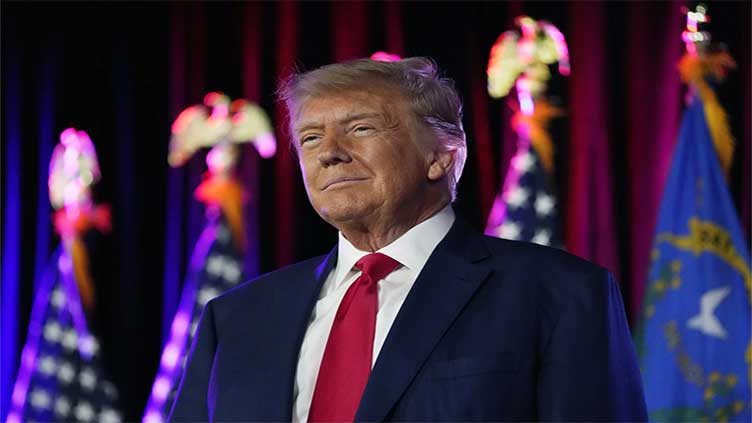Donald Trump brings his campaign to the courthouse as his criminal hush money trial begins

World
Donald Trump brings his campaign to the courthouse as his criminal hush money trial starts
NEW YORK (AP) — Former President Donald Trump began his day as a criminal defendant lashing out at the judge and prosecutors, casting himself as a victim and angrily posting on social media.
In other words: a familiar routine.
But inside the courtroom, which was closed to TV cameras, Trump was a different man — reserved and muted in a stark departure from his feisty approach to other legal troubles.
The contrast spoke to the gravity of his situation. Trump is now the first former president ever to stand trial on criminal charges and faces the prospect, if he loses, of becoming the first major American presidential candidate in history to run as a convicted felon.
Trump is accused in the case of falsifying business records to hide alleged hush money payments made to a porn star to keep her from going public during his 2016 campaign with allegations of an affair.
The trial is expected to last at least six weeks and Trump, the presumptive Republican presidential nominee, is required to attend every day court is in session — a schedule that will dramatically alter his daily life and his ability to campaign in battleground states.
So Trump instead brought his campaign to the courthouse, delivering statements before and after the day’s proceedings, which he again cast as nothing more than a politically motivated effort by his rivals to hinder his campaign.
“This is political persecution,” he steamed after arriving with a phalanx of lawyers and several senior aides, but without his wife or other family members. “This is an assault on our country,” he went on.
Trump is already well practiced in the art of campaigning from the courtroom. In addition to appearances related to his four criminal trials, Trump this year voluntarily attended most days of his civil fraud trial as well as a defamation case brought by the writer E. Jean Carroll, who had accused Trump of rape.
Those two trials did not end well for Trump: The former president was found liable in both cases, and now owes over half a billion dollars, including interest.
During those hearings, Trump was often admonished by the judges, who instructed him to be quiet or answer questions more succinctly. At one point, the judge in the Carroll suit threatened to kick Trump out of the courtroom for speaking loudly. Another day he stormed out. Trump also openly sparred with the judge in his civil fraud case, including from the witness stand.



